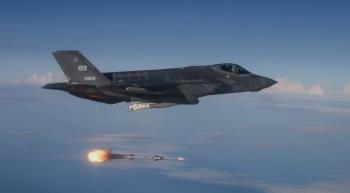Alwaght- One of the most important issues that have recently received wide international attention is Russia’s entry into the war in Syria and the country's air strikes against the positions of Bashar al-Assad’s enemies.
Decision of Kremlin’s politicians to intervene in the Syrian crisis could be traced back into Ukraine crisis. Ukraine crisis in 2014 and Russia's military action could be viewed from a perspective similar to the crisis of the Prague Spring in 1968. In both cases, the Russians were worried about losing their control over their allies, neighbors or backyards. In both cases, the Russians who were incapable of applying political and economic levers, desperately resorted to military force. In the Prague Spring, political efforts of the Soviet Union proved ineffective and Czechoslovakia was eventually invaded by Warsaw Pact Countries. Ukraine also suffered years of economic hardship and Viktor Yanukovych, the Ukrainian President had been negotiated with the Europe and Russia to solve these problems. As a result of the negotiations, the Europe had promised to provide Ukraine with funding to carry out economic reforms, but the pro-Russian Yanukovych preferred the Russia's few billion-dollar loan option which was much less valuable. This sparked massive street protests of the Ukrainians, and the Ukrainian President fled to Russia.
In the next step, the Russian made military interventions under the pretext of protecting the lives of the Russians in the Crimean peninsula, and holding a referendum. Then, Russia divided Ukraine and in this way punished the Ukrainians. That was exactly what they did with Georgia, a few years ago in response to the Western’s interventions. But this time, the Western imposed economic sanctions against Russia, and deployed NATO forces at the European borders with Russia. Accordingly, the tension between the West and Russia reached its peak.
We must wait to see what Russia would do in Syria despite the economic sanctions imposed by the West. At the minimum, Moscow authorities are trying to use Syria crisis as a winning card to win more concessions in Ukrainian crisis. In this scenario, the number of attacks launched by Russia in Syria would be reduced or even they might be terminated, and in return the Ukraine crisis may come to an end, and the economic sanctions against Moscow, imposed by Europe and the United States, would probably be lifted. But if Russia believes that Syria is about to be divided into several smaller countries, then Russia would seek to win more concessions from economic sanctions and crisis in Ukraine, and would demand its own share from the countries that might be born out of Syria. Eventually, if Russia adopts a strategic perspective similar to the one it had adopted in the years after World War II, it would make use of its capacity to make maximum intervention in Syria, because the successful implementation of the Russian plan in Syria, would be considered as the failure of the West. On the other hand, what determines the extent of Russia’s involvement in Syria, in addition to military and economic power, depends on the main motivation of the Western countries for intervention. If the West believes that Russia's intervention is an effort to force the Western countries into negotiation, clearly their reaction would be different from the one in which they considered Russia a disturbing factor for their plans in the West Asia. However, over time, military and economic capabilities of Russia and the results achieved in the next few months in Syria, would perhaps encourage the Kremlin’s politicians to make further interventions or vice versa.
Undoubtedly, Russia's military intervention in Syria would affect all parties involved in the crisis. As the terrorist forces opposed to Assad are weakened, there would be a power vacuum in the ranks of the enemies of the central government, and this would be a catalyst for changes in the strategies of the United States. In fact, the change in Western countries’ strategy, from training the moderate insurgents to strengthening the Kurdish armed forces as the infantry units as well as the democratic forces, in the first place is the result of Russia's military intervention in Syria and the power vacuum which would develop over time. The Western countries are by no means, willing to see that the power vacuum is filled by Assad's forces. Putin seems to be aware of the future effects of his military intervention and that is why he is trying to attract the Kurds. In other words, Putin knows that he cannot prevent the Western forces from cooperation with the Kurds, he also cannot target the positions of the Kurds. Besides, he does not wish the Kurds to be on the side of the West. Therefore, he is going to build trust and win the support of the People's Protection Units (YPG) and the Women’s Protection Units (YPJ).
However, it seems that the Kurds have a better understanding of the policies of Russia and the West. Democratic Union Party (PYD) has adopted the policy of negative balance. It means, although PYD has developed diplomatic relations and receives military assistance from both parties, it has not entered into alliance with any of them, or has not been affiliated to any of them. However, it should be noted that as the Kurds feel obliged to the United States for its support in Kobani crisis; therefore, the Kurds have a greater sense of belonging to the West and are more inclined to the West.
We may conclude that Russia serves as a catalyst for accelerating the pace of the game and faster implementation of any contingency plans of the actors involved in the Syrian crisis. Although Russia wishes to have more wining cards to put pressure on the West to uphold the realities imposed in Ukraine and assume more roles for itself, the Russia’s interventions in Syrian crisis is accelerating the pace of developments in the country and the Western countries would come to the conclusion that they should not delay in the implementation of their scenarios.


























